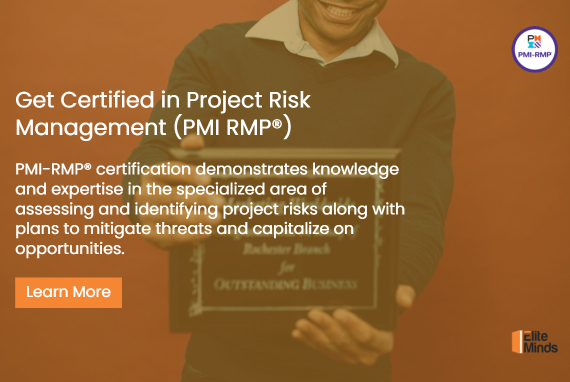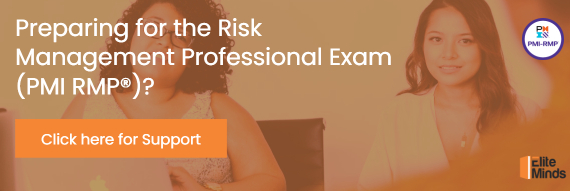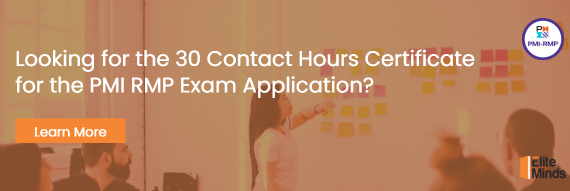
In project management, risk management is the practice of identifying, evaluating, and preventing or mitigating risks to a project that have the potential to impact the desired outcomes. In a risk management interview, you will be asked questions that will test your knowledge of people skills, technical understanding of risk management practices, and response to specific scenarios.
What is a Risk Management Job?
Project managers are typically responsible for overseeing the risk management process throughout the duration of a given project. However, in complex or mega projects, a risk manager should be hired to take on risk management activities in the project.
Risk management professionals seek to identify, analyze and document the risks associated with business operations or project management activities, as well as monitor the effectiveness of risk management processes and implement needed changes. Senior executives and expert recruiters recognize that risk management is vital for the success of the organization, and a strong enabler for realizing the organization strategy.
The Project Management Institute (PMI) reports in a survey that in the U.S., over $122 million gets wasted for every $1 billion invested due to poor project performance. When it comes to hiring certified risk managers, who can support a project performance, candidates are reviewed in several ways.
Getting through a risk management interview successfully is both an art and a science. There are a lot of unknowns, but focusing on key areas or competencies of risk management and giving the right answers to the questions based on them in the interview helps you get selected.
When you do not know what to expect, a risk management interview can be frustrating. It is a good thing to know that going through a few common questions can help you prepare for your interview. In this blog, we will be covering 30 sample risk management interview questions.
30 Risk Management Interview Questions
Here are a few risk management interview questions that you are likely to encounter in your interview as a risk manager. Use this list for inspiration when preparing stories based on your real risk management experience.
-
Define process groups in a project management framework.
As the risk manager of a project, you should have the fair understanding of project management domain. One of the basic questions you should expect is about listing the key process groups that should exist in a project. They are: Initiating, planning, executing, monitoring and controlling, and closing.
-
How will you interact with the project manager?
The risk manager should be reporting to the project manager within the context of a project. He/she might provide regular executive risk status reporting, but this should be through the project manager. The risk manager will usually interact with the project manager on daily basis.
-
How well are you prepared to manage a remote team?
Some organizations often choose their teams from a global workforce, and the risk manager is expected to manage teams remotely. You should be equipped with the knowledge and skills to work with team members virtually. It calls for a different management technique. Your answer to this risk management interview question should clearly describe the project risk management methodology you may choose to manage people and resources in a remote environment.
Watch out this video: What is Risk Management Methodology?
- What do you know about the triple constraint triangle of project management?
From a project management practical point of view, any project has restrictions and constraints that must be handled to be successful in the end. Project managers and risk managers should know that schedule, scope, and budget are the three critical constraints. These are sometimes known as the project management triangle of constraints.
-
What are the project management methodologies in your project?
This is a risk management interview question; however, it tests your understanding of project management concepts. Some of the popular project management methodologies are: Waterfall, Agile, Scrum, Kanban, extreme programming, lean, and crystal methods.
- As a risk manager, what should you expect from the Project Management Office (PMO) in your organization?
Well, you should show the interviewer in this question that you know the different types of projects management offices. A project management office (PMO) is a group or department that defines, maintains and ensures project management standards across an organization. As per the level of authority this office might have, it could be supportive, controlling, or directive. The type of PMO will identify the roles of this office toward risk management activities in your project.
- What is the difference between Program, Project, and Portfolio?
Again, this is a risk management interview question; however, it tests your understanding of project management concepts. A project is a temporary endeavor undertaken to create a unique product, service, or result. Program is a group of related projects managed together in a coordinated manner to achieve specific benefits that will not be realized unless they are managed together. A portfolio is a collection of projects and programs that are managed as a group to achieve strategic objectives.
-
From your perspective, what is the definition of risk management?
This risk management interview question is a bit of a theory part. As per the PMBOK, it can be defined as the systematic process of identifying, analyzing, and responding to project risks
-
Suppose the project has gone off the rails regarding risk management. What steps would you take to get it back on track?
As a professional risk manager, you should have a proactive approach toward identifying and responding to project risks. Once you realize a project is not going as per the pre-planned risk management approach, the next top priority is to get it back on track. Your answer to this risk management interview question may include conducting a full reassessment, or even analyze and update the current risk management plan.
-
Can you explain the differences between risk and issues?
As per the PMBOK, risks refer to an uncertain event or conditions in the future that would bring a negative or positive impact on the project goals. Issues apply to any event or situation that currently impacts the project objectives. In other words, risk focuses on future events while issues are more of present occurrences. Issues are often considered negative, say a team member suddenly resigns from the organization. Risks would be either positive or negative.
- Explain the concept of RAID in project management.
RAID is a tool that is commonly used in project management. It stands for Risks, Actions, Issues, and Decisions. To define it, RAID is a tool used by project managers to track risks, actions, issues, and decisions in an organized manner. While answering the risk management interview question, you should be prepared with the definitions of these four concepts.
- What’s your leadership style?
There are several leadership styles that the project manager or risk manager can utilize, each with its benefits and drawbacks. When it comes to risk management, it's impossible to avoid bringing up a leadership style. A risk manager may have to choose how they lead depending on the project, from top-down to servant leadership.
- Which software can you use to analyze the project overall risk?
The Monte Carlo simulation is a computer software that is used heavily in risk management. It allows you to account for risk and help you make data-driven decisions. It is based on historical data that is run through many random simulations to project the probable outcome of future projects under similar circumstances.
- What is your approach regarding managing the performance of your team?
This risk management interview question will test your leadership skills. Be thorough about your daily tasks when it comes to managing your risk management team’s performance—for example, perhaps you hold weekly strategy meetings. You’ll also want to provide specific examples of how your management style has resulted in positive team performance.
-
How do you motivate team members?
Motivation is a key leadership skill. It’s crucial as a leader to not only ensure your team stays on the right track but also gets motivated about the projects they’re working on. Maybe you give praise for a job well done as a form of motivation. As long as you can demonstrate past examples of how you’ve motivated team members, there’s not a right or wrong answer here.
- How should you deal with an underperforming team member?
This question should be answered based on your own experience; you should deal with an underperforming team member as follows: Informal conversation, understand underlying cause, offer help, possibility of role change, replace the underperforming resource.
- How do you control changes to your project?
Managing change requests is the ultimate responsibility of the project manager. As the risk manager, your duty is to support the project manager assessing any new change request impact from a risk management perspective. It's also important to adapt to those approved changes quickly.
- What tools do you use as a manager to plan your activities in the project?
There are various tools available that risk managers use to stay organized. Be sure to list as many tools as you can think of that you’re familiar with to demonstrate your knowledge of risk management software and other tools.
- How do you tackle uncertainties in your project?
Uncertainty is a lack of complete certainty. Best approach to manage uncertainty is through proactive risk management, and identifying potential threats that might occur as a result of uncertainty. Uncertainty is inherent in the nature of projects.
- How do you identify stakeholders you need to communicate with regarding risk management?
In this context of the interview, being the risk manager, a stakeholder is a party that has an interest in risk management activities in the project and can either affect or be affected by the it.
-
What are the steps for efficient risk planning?
Effective risk planning in projects starts with developing the risk management plan, then identifying the potential project threats and opportunities, analyzing the identified risks, and finally planning proper response plans.
- What are the key sections that should be available in a risk management plan?
The risk management plan includes a risk budget, risk roles and responsibilities, timing, reporting, probability and impact definitions, risk tolerance level, and how to implement risk responses. The more complex, higher budget, and longer duration projects likely have more comprehensive risk management plan. It is a subsidiary of the project management plan.
This is a very important risk management interview question, as the risk management plan is the first deliverable of risk management activities on the project.
Read more: Risk Management Planning
-
What are the techniques you may use to identify risks of a project?
Once we have the risk management plan approved, risk identification should kick off. Some of the commonly used risk identification tools and techniques includes: Brainstorming, checklists, interviews, document analysis, assumption and constraint analysis, risk breakdown structure, and prompt lists.
Read more: Risk Identification
-
When would you escalate a risk?
The answer of this question should refer to the project internal governance where the levels of authorities are indicated. When the risk impact exceeds the project manager authority, it should be escalated as per the governance.
-
How do you utilize the probability impact matrix in your project?
This tool is part of the project qualitative risk analysis. It's a grid for mapping the probability of each risk occurrence, and its impact on your project objectives if that risk occurs. The Probability and Impact Matrix is one the most commonly used qualitative assessment methods.
- What is the expected monetary value for a risk?
Expected monetary value is a tool used in quantitative risk analysis. Expected monetary value formula in its simplest form is a three-step process: Determine the probability (P) an outcome will occur. Determine the monetary value or impact (I) of the outcome. Multiply P x I to calculate the EMV.
- Mention the most common risk response strategies to deal with project threats, and give examples on each from your own experience?
Your answers to the risk management interview questions should not be based only on theory. Majority of us are familiar with the commonly used risk response strategies like avoid, transfer, mitigate, accept, and transfer. However, the interviewer wants to see how you use these strategies in your practice experience. You should be ready with such examples that link the risk management theory to your experience.
- What are the key differences between subject and objective risk analysis?
This is a very important risk management interview question. Risk analysis is being conducted in two phases: Subjective/qualitative that is used to prioritize the project risks based on their probability and impact ratings.
Objective/numerical analysis is based on the expected monetary value calculations to determine the overall combined effect of project risks on the project objectives.
Read more: What is Risk Analysis in Project Management?
-
How do you calculate required contingency reserves on your project?
Contingency reserve is used when a risk occurs as part of the risk response strategy. The actual impact of the risk is added to the cost or schedule, the estimates are updated, and contingency reserve decreases. The contingency reserves required for the project can be determined through calculating the expected monetary value of each risk on the project.
- What are the key differences between risk audit and risk reassessment?
This risk management interview question will test your understanding of the various risk monitoring tools and techniques. Risk audit is the examination and documentation of the effectiveness of risk responses in dealing with identified risk and their root causes, as well as the effectiveness of the risk management process.
Risk reassessment in project management involves identifying new risks and reassessing current ones. It is also involved in closing risks that are outdated and no longer threatening to the project.
Get Certified in Risk Management
Being a project manager isn't an easy job, it can be hectic for many. However, a project manager doesn't necessarily require certification, but getting a PMI RMP can definitely get you a better paycheck. With this certification, you will be able to think on projects from different aspects, strengthening your overall analysis.
Taking the PMI RMP exam isn't going to be a piece of cake, there are certainly many things you must know before taking the exam. And here, we will be discussing everything you need to know about the PMI-RMP certification exam. Therefore, without further ado, let's get straight into the prime discussion.
PMI or better known as Project Management Institute of the United States is an accreditation body for the PMI RMP certification exam. The organization is one of the leading not-for-profit professional associations, which was founded in 1969.
Before diving into further details, it is vital to start the discussion with the exam structure for the PMI RMP certification exam. The exam will have a total of 115 questions, and all will be multiple choice questions. Candidates are expected to complete their exam within 2.5 hours.
Though the exam is challenging, it is comparatively less difficult than other PMI exams. To maintain your PMI RMP, you must earn 30 professional development units (PDUs) in risk management topics every three years.
Furthermore, if you are a PMP, then it is recommended that you prepare for the PMI RMP certification exam after you have cleared your PMP exam. The overall fee structure for the exam depends on whether you are a member of the Project Management Institute or not.
The exam fees for members are $364.00, whereas when it comes to a nonmember, the exam fees go a little higher, up to $469.00. The best part about this exam is that you can take this according to your convenience. You can take the exam online or in person, whichever you prefer. At the same time, the exam is available in both Arabic and English.
Who is Eligible for the PMI RMP Certification?
Before signing up for the exam, it is crucial to know its eligibility criteria and the prerequisites for taking a PMI RMP exam. Two types of candidates can qualify for taking this examination.
You can qualify for this exam if you have a secondary degree; this means that if you have a high school diploma, associate’s degree, or the global equivalent, then you can take this exam for PMI-RMP certification.
However, you will also need 36 months of project risk management experience which you should achieve in the last five years. Once you have both of them, the last thing you will be required for this exam is 40 hours of project risk management education. If you have all three, you are eligible to take the exam.
However, the second type of candidates that qualify for the exam is those with a four-year degree. This four-year degree can be a bachelor’s degree or the global equivalent. If you have a four-year degree, then the next thing you will acquire is 24 months of project risk management experience.
It is also worth mentioning that the experience will be considered valid when it's from the last five years. And if you have fulfilled both of the requirements, the last thing you will need is 30 hours of project risk management education. Once you have all three, you can take the exam to get your certification.
The Process of Getting Certified
Now that you know the eligibility criteria for the exam along with the prerequisites, you need to know the whole process that you need to follow to get the certification under your name. The very first thing you need to do is fill out the application form that you will find on the official website of the Project Management Institute.
Once you have applied, it will take five working days for the institute to get back to you after viewing your application. Once the application is reviewed and it is not selected for auditing, then you will be notified; this means that you can pay for the examination fees.
However, if your application is selected for auditing, then the candidates must provide some of the requested information. This information may include a copy of the candidate's education certificate and signed risk management experience forms and can even include the PDU certification. PDU certification represents the level of experience that a candidate has.
Collecting and submitting information must be done in under 90 days, and the PMI usually takes 5 to 7 working days to respond to the candidates. Once the process is complete, your application will be accepted, and you can pay the examination fees.
After you have paid the fees, your application is said to be done, and you can now prepare for the exam. Once the candidate is fully eligible to take on the exam, they get a notification on their email that contains information like the candidate’s Unique PMI Eligibility ID, Instructions on the exam schedule, and the period for which the candidate will be eligible to take the exam.
The exams are taken in specific centers, and the candidates that have passed the exams will have their names displayed on the website after a few days of giving the exams.
If you are fully ready to take on the exam, then there are a few tips that you must keep in mind to get this certification smoothly. First of all, start by reviewing the PMI certification handout. The handout is available in multiple languages so that you can choose according to your preference.
Before taking the exam, thoroughly go through the exam specifications and content outline. The outline and specifications are available in Arabic and English. It is also recommended to go through the Standard for Risk Management in portfolios, programs, and projects. Ensure you have the best guidebook and training partners to help you ace your exams.
Final Words
All in all, the PMI RMP certification exam is an exam that can help you in a lot of different ways. Though the exam might seem a little costly initially, it is definitely worth the investment as you will have a broader perspective while taking the exam.
Ensure you have the best trainers to teach you for the exam. One of the best courses you can get to train for this exam is provided by Elite Minds. We believe that they have the right teachers who can train you for this exam and assess you throughout the whole training. Have a look at our PMI RMP exam preparation course.
Conclusion
Project risk management aims to identify and prioritize risks in advance of their occurrence, and provide action-oriented information to project managers.
The risk management interview questions are not an exhaustive list. Nonetheless, the interview questions cover the most important risk management skills and competencies that the candidate not only will be tested on during an interview but also will need to succeed as a risk manager.
Knowing the right answers alone isn’t enough. We at Elite Minds offer risk management certification training programs that can help you acquire and build on these skills further, and prepare you to get beyond the interview and land your dream job!
PMBOK®, PMI RMP®, and PMI® have registered trademarks of the Project Management Institute, Inc.




.jpg)




.jpg)
.jpg)